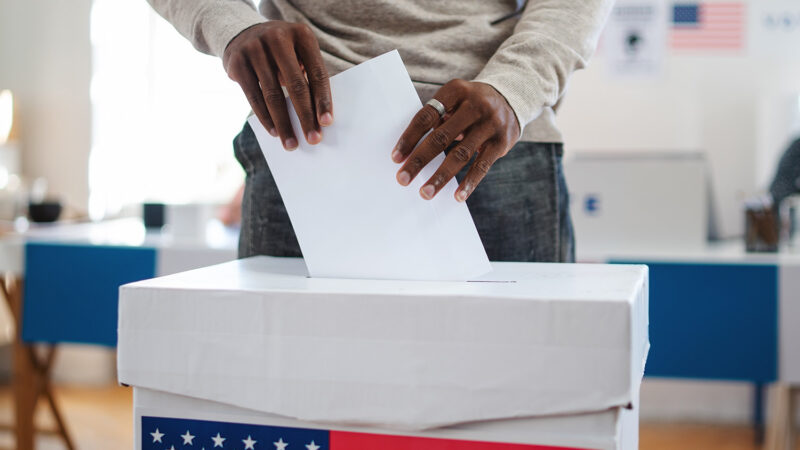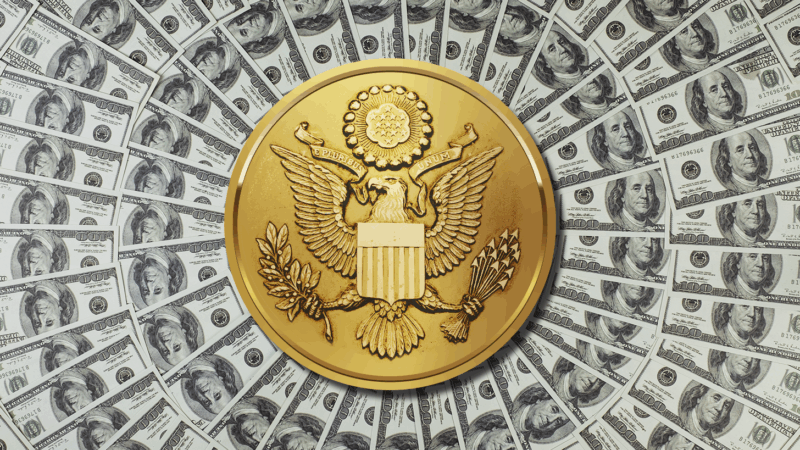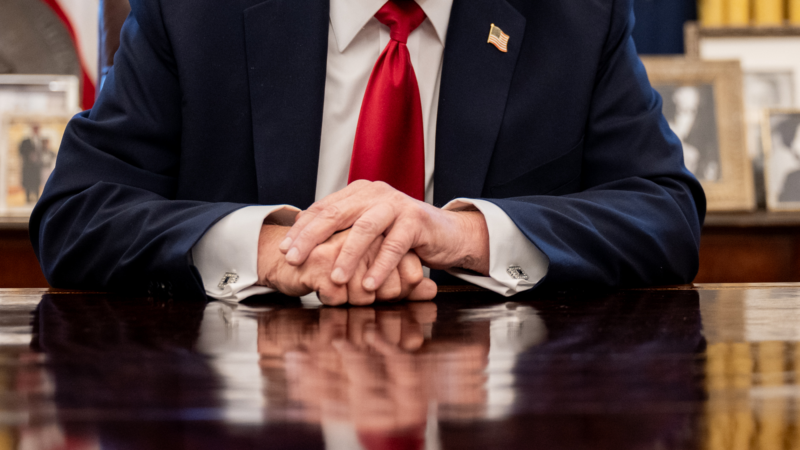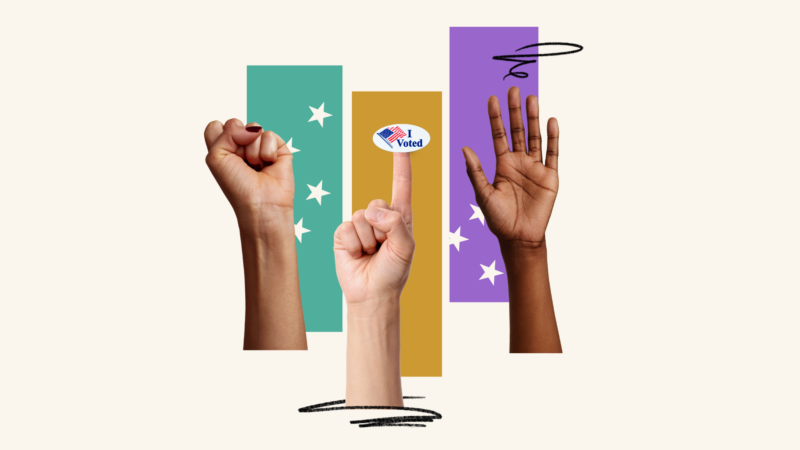Amanda Carpenter is a writer and editor at Protect Democracy. She was previously a writer at The Bulwark, a CNN contributor, communications director to Sen. Ted Cruz, and speechwriter for Sen. Jim DeMint.
What Trump’s courtroom antics are really telling us
- November 7, 2023
Connecting the dots of a multi-pronged assault on the rule of law
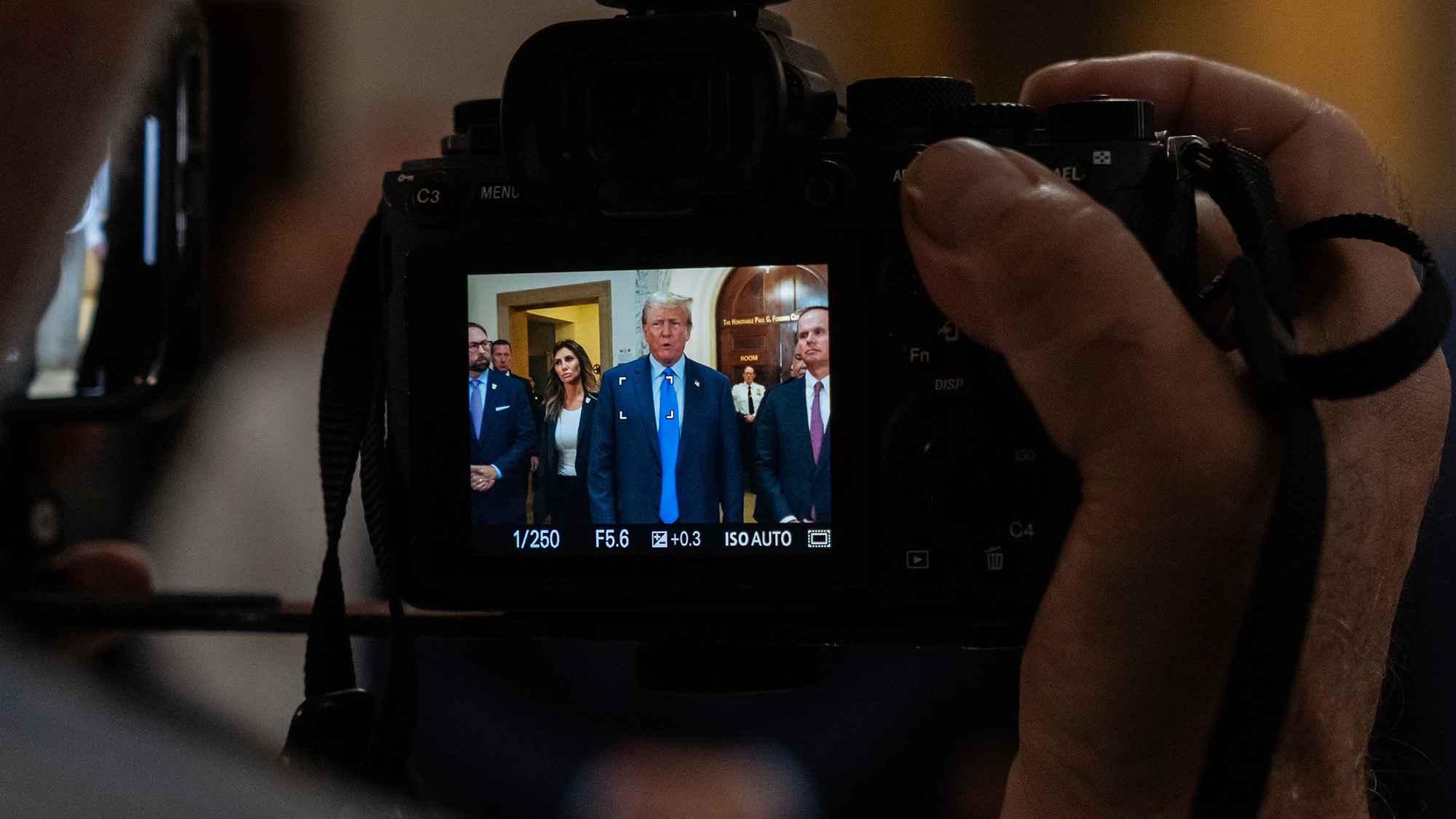
Watching Donald Trump lose his temper, ignore instructions, and insult people in court isn’t just bad manners. His actions exemplify something far more dangerous: a former president resisting any accountability under the law — a man who, if restored to power, will try to make sure the law is never applied to him again.
Trump’s wild antics may make for colorful courtroom stories, however, the reality is that the legal cases are proceeding normally — except for the often dangerous and threatening behavior of the defendant. Motions are filed, evidence is presented, witnesses testify, and the justice system is working towards its conclusions.
In the meantime, Trump’s actions should be viewed in the context of how, if given the chance, he would govern starting in 2025.
The long-game: Politicizing the rule of law
This week, The Washington Post published a piece under the headline, “Trump and allies plot revenge, Justice Department control in second term,” which reported on the Trump campaign plan “to harness the power of the presidency to exact revenge on those who have challenged or criticized [Trump] if he returns to the White House.”
According to the Post, targets for harassment and unwarranted government investigation include Trump’s handpicked former staff, such as former Chief of Staff John Kelly, former Attorney General William Barr, former Joint Chiefs of Staff Chairman General Mark Milley, as well as President Joe Biden.
Why? Because these people objected to Trump’s unconstitutional actions when he was president, or in the case of Biden, are political opponents.
It wasn’t a one-off statement. The Washington Post reporting added details to a larger body of work establishing his plans, including from the Associated Press, Axios, The New York Times, and Politico. Trump’s philosophy is simple. As he said while campaigning in South Dakota, “If I win and somebody wants to run against me. I call my attorney general, and I say, ‘Listen, indict him.’”
Since the beginning of the Trump era, the rule of law — and in particular, the independence of the Department of Justice (DOJ) — has been a critical battleground. Trump’s “lock her up” 2016 campaign signaled his wish to deploy DOJ against political rivals. That’s why Protect Democracy’s very first action when we launched in 2017 was to release a memo on the longstanding bipartisan policies to prevent the White House from interfering in specific DOJ investigations or prosecutions.
When President Trump proclaimed that Article II of the Constitution gave him an “absolute right” to do what he wanted with DOJ, we released a detailed legal deep dive describing the constitutional limits on White House interference in specific law enforcement matters and then made these points in court on behalf of a bipartisan array of leading former DOJ staff. As these officials explained: “The president’s Article II powers don’t grant absolute control over law enforcement; instead, they impose a series of commands and limitations. And the Bill of Rights further protects against unequal and irregular treatment.”
Trump’s desire to direct DOJ enforcement actions against critics and perceived political opponents goes hand-in-hand with his resistance to any accountability under the law — whether in his New York civil trial or for other serious prosecutions he faces in Washington, Georgia, and Florida. Tellingly, his aspiration to substitute politicized law enforcement for the evenhanded application of the rule of law is a central feature of the modern authoritarian playbook.
Read: The Authoritarian Playbook Read: The Authoritarian Playbook
Undermining the rule of law with politicized law enforcement allows a strongman to do three things:
- First, free himself and his allies of any accountability. This can be done by quashing investigations, pardon abuse, and elevating bad actors to influential positions in the government.
- Second, it allows a president to target his political adversaries, using the law as a political tool to criminalize political opposition.
- Third, once the president and his allies are unconstrained by any fear of prosecution by DOJ, that unlocks a toolbox unscrupulous officials can exploit to further abuse their power for political ends. Previous threats to investigate media companies for “treason,” hold up mergers, and withhold disaster aid for states that did not support him are just a few examples.
Connect the dots
It’s important to remember that, despite Trump’s protestations, he is no different than any other defendant. Cases against him are proceeding, with trial dates set. That is indicative of the strength of a system that is working to hold all Americans accountable, even a former president.
The judge overseeing the New York fraud case was correct to warn Trump the fraud trial is “not a political rally” because Trump is transparently working to politicize the process.
For the American public following the ongoing trials as well as Trump’s plans should he return to office, it’s essential to connect the dots between his disregard for the rule of law in a New York courtroom now and his plans to weaponize law enforcement if in office. It would be both dangerous and wrong to view these developments in isolation or as merely elements of a political horse race story.
Trump isn’t just disrespecting judges and prosecutors in the courtroom. He’s showing he doesn’t think the rules should apply to him.
For now, the system is holding, and we should focus on why it’s so crucial that the rule of law applies to everyone, including former presidents. If we don’t, it may be the last time a U.S. president is restrained by any law at all.
Related Content
It can happen here.
We can stop it.
Defeating authoritarianism is going to take all of us. Everyone and every institution has a role to play. Together, we can protect democracy.
Donate
Sign Up for Updates Sign Up for Updates
Explore Careers Explore Careers
How to Protect Democracy How to Protect Democracy


